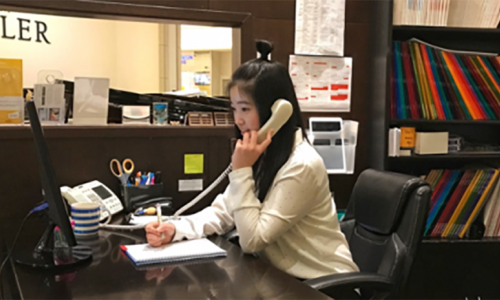
*Results not guaranteed
So, you’ve messed up.
Maybe you tagged the wrong company in your tweet. Or perhaps you sent the incorrect file to the printers and they printed 500 (very expensive) copies of last year’s layout. Heck, maybe you crashed the servers three times (like I did). Regardless, you made a mistake.
Do you feel the panic rushing in? Breathe. It’s going to be ok.
Follow these six easy steps and you will be on your way to remedying the problem while still looking good to your supervisor.
1. Alright, First Step: Figure Out Exactly What Went Wrong
This may seem a bit obvious, but think about what just happened. Objectively, what did you notice was wrong and what are the consequences? Did anyone see that tweet? How much was spent on those copies? Are the websites down? What happened?
2. Step Two: Can You Fix It?
Think about what steps you would need to take to remedy the situation. Would you be able to delete that tweet? Are the printers willing to do a reprint? It’s important here to know what you are able to do in this situation and what you are not.
It’s ok if you can’t fix it yourself! You are a Co-op student; you are kind of expected to make mistakes and learn from them. Determine who can fix it or can help identify a remedy. Those internal servers? You probably will not be able to fix that with your skillset, but the IT department can.
3. This Leads Me To Step Three: Why Did It Go Wrong?
Think about why this problem occurred and what actions can be taken to avoid it in the future. Were you not paying attention? Or maybe you did not fully understand how something worked, which lead to its demise. (I’m looking at you, servers.) Would further training help you? Do you need to create a reference document containing your company's frequently tagged Twitter handles? Maybe it would be beneficial to have a second pair of eyes look over your printer order before it gets sent.
Remember, try to come up with actions that YOU can accomplish within a reasonable timeline. Don’t expect a full corporate policy change for a mistweet, but be open to showing your learning experience and proposed solution because your solutions may help the organization learn and grow as well.
4. Now For The Scary Part: You Have To Tell Your Supervisor
Gather your thoughts from the last three questions and formulate a clear description of exactly what occurred, why it is a problem, what steps can be taken to fix it, and how it can be prevented in the future. When you are speaking with your supervisor be direct and honest - taking ownership speaks to your character. You are a professional who happened to make a mistake.
Ask your supervisor what they believe you should do. Since you have already done most of the work, your supervisor will probably just tell you to go ahead with your plan. If not, ask for guidance on what exactly you should do. Ask questions if you are confused; they want this problem fixed too!
5. Implement your Strategy
Go back to your desk and do what you and your supervisor agreed to do. Problem solved!
6. Finally: Go Easy on Yourself
As Co-op students, we sometimes put a lot of pressure on ourselves to be perfect all the time. Remember that a Co-op work term is an opportunity to learn and grow as a professional. You are going to make mistakes - that is only natural. Take ownership of teachable moments; be better because of them and you will be adding value to your team as much as you value the opportunity.
Bonus Step: Add “Problem Solving” To Your Resume
The problem you just solved is a perfect example you can use in future interviews and demonstrate exactly what employers want to see! Practice applying the situation to the classic interview question, “tell me about a time you were faced with a problem at work.”
With these steps you are showing that you are a conscientious and accountable team player who can problem solve like nobody’s business. Now go get ‘em!














